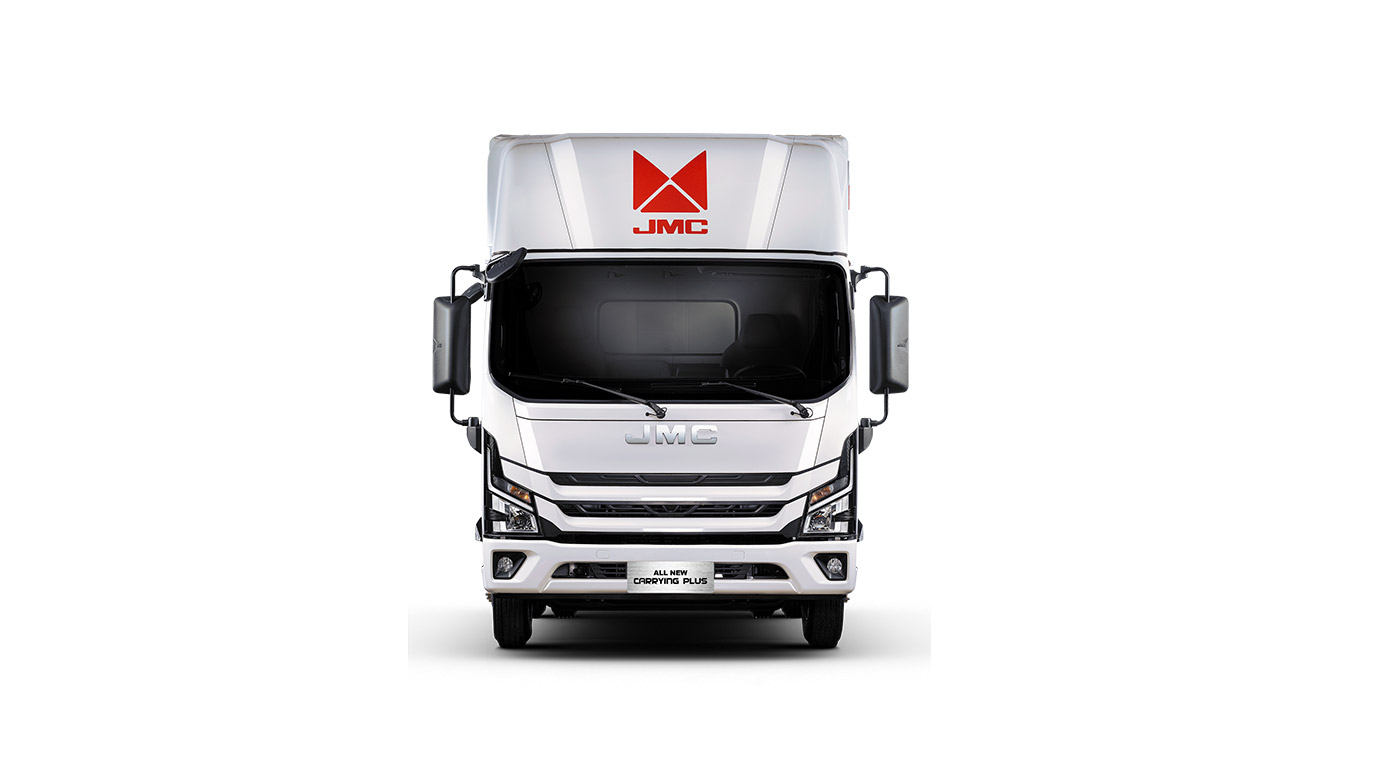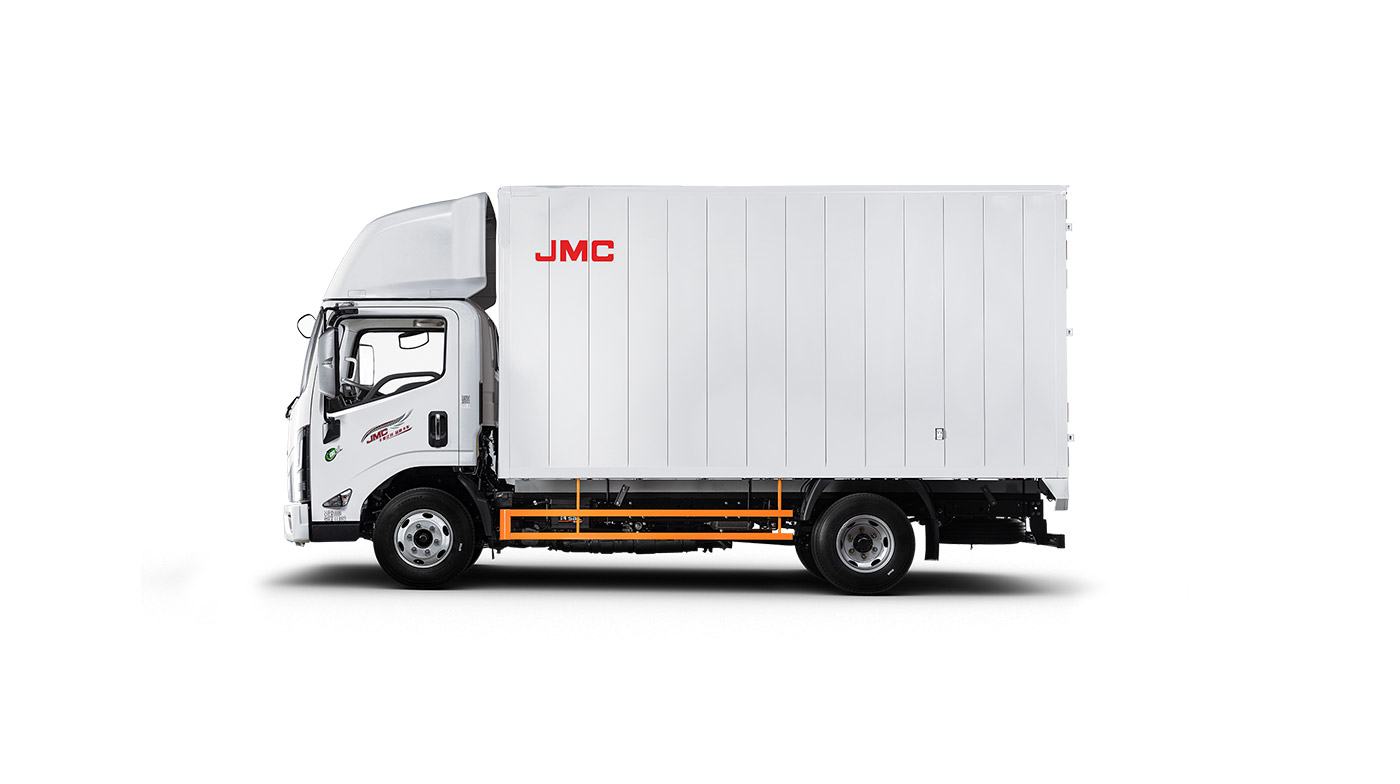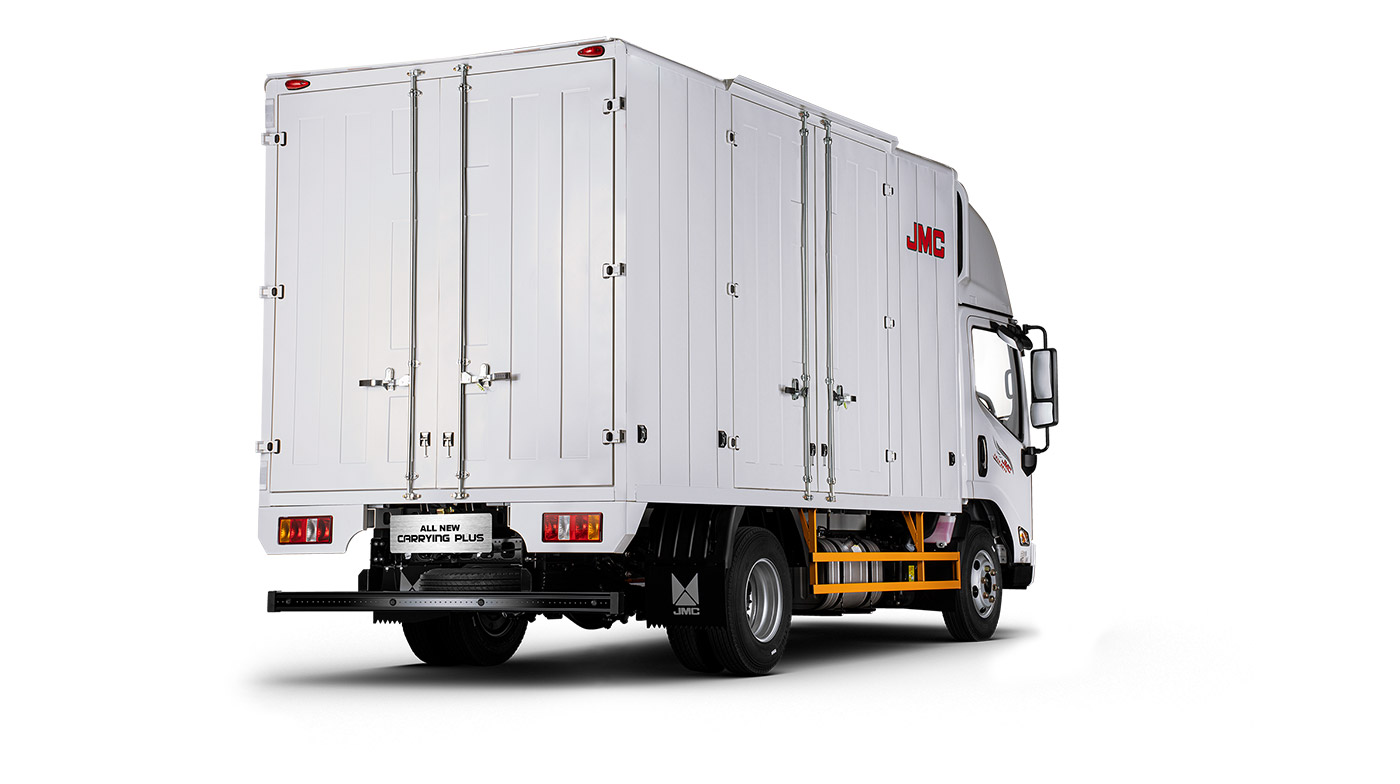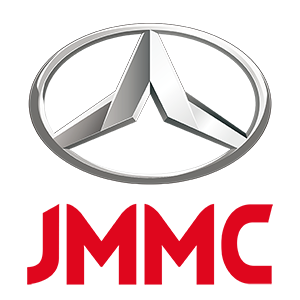What Is Light Duty Trucking Classification?
- Categories:BLOGS
- Author:
- Time of issue:2024-02-28 17:19
- Views:0
(Summary description)Explore the essential guide to light duty trucking, covering classifications, uses, and the latest trends. Discover how JMC is leading the market in light truck manufacturing and how these vehicles contribute to efficient logistics and supply chains.
What Is Light Duty Trucking Classification?
(Summary description)Explore the essential guide to light duty trucking, covering classifications, uses, and the latest trends. Discover how JMC is leading the market in light truck manufacturing and how these vehicles contribute to efficient logistics and supply chains.
- Categories:BLOGS
- Author:
- Time of issue:2024-02-28 17:19
- Views:0

Welcome to the comprehensive guide on light duty trucking – an essential component of the modern logistics and transportation industry. In this article, we explore the various facets of light duty trucks, from their classification and industry applications to the latest technological advancements and market trends. Whether you're a business owner, a logistics professional, or simply a truck enthusiast, understanding the role and benefits of light trucks, especially in the context of China's evolving market, is crucial. Stay with us as we delve into the world of light duty trucks and discover how they are shaping the future of transportation.
- The Basics of Truck Classification
- Light Duty Trucking Explained
- Introduction to Light Duty Trucking
- Key Features of Light Duty Trucks
- Industry Applications of Light Duty Trucks
- Economic Impact of Light Duty Trucking
- Choosing the Right Light Duty Truck
- Maintenance and Care
- Technological Advancements
- The Role of Light Duty Trucks in Logistics and Supply Chain
The Basics of Truck Classification
Understanding the basics of truck classification is crucial for businesses in the logistics and transportation sector, especially when it comes to light trucks. This foundational knowledge assists in making informed decisions about fleet management, vehicle purchase, and understanding regulatory compliance. But what exactly defines a light truck, and how does it fit into the broader spectrum of truck classifications?
Truck classifications are primarily based on the Gross Vehicle Weight Rating (GVWR), which is the maximum operating weight/mass of a vehicle as specified by the manufacturer, including the vehicle's chassis, body, engine, engine fluids, fuel, accessories, driver, passengers, and cargo, but excluding the weight of any trailers. Light trucks fall into specific categories within this classification system, generally designed for cargo transportation while still being manageable in urban environments. They are distinct from heavier truck classes that are intended for large-scale logistics and freight hauling.
In the context of this classification, light trucks typically encompass a range of vehicles including pickup trucks, mini vans, and sport utility vehicles (SUVs). They usually fall within the GVWR range of 0 to 14,000 pounds (0 to 6,350 kilograms). This categorization includes Classes 1 to 3, which covers vehicles from everyday consumer trucks to larger commercial pickups and vans used by small businesses and light truck manufacturers.
Given the evolving market, the term 'light truck' can also extend to emerging vehicle types, such as EV trucks. These electric vehicles are gaining popularity due to their eco-friendliness and cost-effectiveness, particularly in China's light truck market, where manufacturers are increasingly focusing on sustainable and efficient transportation solutions. However, regardless of power source, the fundamental classification remains tied to GVWR, ensuring a consistent framework for categorization.
This basic understanding of truck classification not only aids in regulatory compliance and operational efficiency but also empowers businesses to make more informed decisions regarding their fleets. Whether operating in China, considering light truck manufacturers for procurement, or exploring the benefits of EV trucks, knowledge of these classifications is indispensable.
Light Duty Trucking Explained
Definition of Light Duty Trucking
Light duty trucking refers to the transportation of goods or materials using light trucks, which are vehicles classified under Classes 1 to 3, with a Gross Vehicle Weight Rating (GVWR) of up to 14,000 pounds. These trucks are designed for versatility and efficiency, making them ideal for navigating urban environments and performing a wide range of delivery and service functions. Light duty trucking is a key component of urban logistics, providing an essential link between large distribution centers and the final consumer.
Typical Uses of Light Duty Trucks
Light duty trucks are used in a variety of applications, reflecting their adaptability and ease of use. Common uses include package delivery, moving services, utility and maintenance tasks, and as service vehicles for a wide range of industries. In addition, light duty trucks serve as personal transportation and as work vehicles for small business owners, contractors, and tradespeople. The versatility of light trucks, combined with their cost-effectiveness, makes them a popular choice across many sectors.
Advantages of Light Duty Trucking
Light duty trucking offers numerous advantages, making it an attractive option for businesses and individuals alike. These trucks are generally more fuel-efficient and easier to maneuver than their heavier counterparts, which is particularly beneficial in crowded urban areas or when navigating narrow streets. Light duty trucks also tend to have lower operational and maintenance costs, contributing to overall cost savings. Additionally, the accessibility and wide variety of models available make it easier for businesses to find a truck that meets their specific needs, whether they're looking for a traditional gasoline-powered vehicle or an eco-friendly EV truck. In markets such as China, the rise of light duty truck manufacturers has led to increased options and innovations, further boosting the appeal of light duty trucking solutions.
Introduction to Light Duty Trucking
Light duty trucking is an integral part of the transportation and logistics industry, especially in urban and suburban settings. This segment of the trucking industry focuses on the use of light trucks, which are typically classified as Class 1 to Class 3 vehicles. These vehicles are characterized by their GVWR of up to 14,000 pounds and are designed to meet a variety of transportation needs while offering efficiency and flexibility.
The role of light duty trucks is critical in the supply chain, serving as the last mile delivery solution that bridges the gap between distribution centers and the final delivery destinations. These vehicles are ideally suited for delivering smaller loads and are essential in areas where larger trucks would be impractical due to size or weight restrictions.
In recent years, the light duty trucking industry has seen significant growth, driven by the rise of e-commerce, changes in consumer expectations, and advancements in vehicle technology. This has led to an increase in demand for light duty trucks, from traditional gas-powered models to innovative electric vehicles (EVs), particularly in markets such as China. Light duty truck manufacturers are responding to this demand by producing a wide range of vehicles that cater to various business needs, from standard cargo vans to specialized utility trucks.
The versatility and efficiency of light duty trucks make them a valuable asset for businesses of all sizes. Whether it's a local florist delivering flowers, a small contractor hauling tools and materials, or a large retailer managing online order deliveries, light duty trucks provide a cost-effective and reliable solution for transporting goods and services.

Key Features of Light Duty Trucks
Engine Types and Specifications
Light duty trucks come equipped with a variety of engine types to cater to different needs and preferences. These range from traditional gasoline and diesel engines to more modern and environmentally friendly alternatives like electric and hybrid powertrains. Gasoline engines are known for their power and acceleration, while diesel engines typically offer better towing capacity and fuel efficiency. Electric engines, on the other hand, provide a quiet, emission-free driving experience, making them ideal for urban settings and contributing to the growing popularity of EV trucks, particularly in markets with strict environmental regulations like China.
Towing Capacity and Payload
The towing capacity and payload are critical features for users who rely on their light duty trucks for work. Towing capacity refers to the maximum weight a truck can tow, while payload refers to the maximum weight a truck can carry in its cargo area and cabin. Light duty trucks are designed to meet a range of needs, from hauling small trailers to carrying heavy loads. While they do not match the towing and payload capacities of heavier trucks, they offer sufficient power for many commercial and personal tasks, making them a versatile choice for a variety of users.
Fuel Efficiency and Environmental Impact
Fuel efficiency is a significant factor for many businesses and individuals when choosing a light duty truck. More efficient vehicles can substantially reduce operating costs and are better for the environment. Many light truck manufacturers are focusing on improving fuel efficiency through advanced engine technologies, aerodynamic designs, and lightweight materials. Additionally, the shift towards electric trucks (EV trucks) is gaining momentum, particularly in China, where there is a strong push for reducing pollution and promoting sustainable transportation solutions. These EV trucks offer excellent fuel efficiency, reduced carbon emissions, and lower overall operating costs, aligning with global environmental goals and consumer demands for greener alternatives.
Industry Applications of Light Duty Trucks
Retail and Small Business Usage
Light duty trucks are indispensable in the retail and small business sector. They are commonly used for delivering goods to customers, transporting inventory between locations, and providing mobile services such as pet grooming, cleaning, or food vending. The versatility and maneuverability of light duty trucks make them ideal for businesses that need to navigate urban streets and tight spaces while delivering goods efficiently and on time.
Construction and Landscaping
In the construction and landscaping industries, light duty trucks are vital for transporting tools, equipment, and supplies to and from job sites. They offer sufficient towing capacity and payload to carry heavy loads, such as construction materials, plants, soil, and other landscaping products. Moreover, the adaptability of these trucks allows for various customizations to suit specific industry needs, such as installing toolboxes, bed liners, or utility racks.
Personal Use and Recreation
For individuals and families, light duty trucks provide a practical solution for daily transportation, weekend adventures, and recreational activities. They are perfect for towing boats, campers, or trailers for vacations and outdoor excursions. Additionally, their cargo space is ideal for hauling sports equipment, gardening supplies, or large purchases, making them a popular choice for a wide range of personal uses.
Public Service and Emergency Vehicles
Light duty trucks are also widely used in public service and emergency response roles. Police departments, fire services, and municipal agencies utilize these vehicles for a variety of tasks, including patrolling, emergency response, and community service duties. The reliability and flexibility of light duty trucks ensure that they are a key asset in serving and protecting communities.

Economic Impact of Light Duty Trucking
Contribution to the Local and National Economy
Light duty trucking plays a significant role in bolstering both local and national economies. By facilitating efficient transportation and delivery of goods, light trucks help businesses maintain inventory levels, meet customer demands, and ensure the smooth operation of supply chains. This level of efficiency contributes to economic growth by enabling faster market access and reducing storage and transportation costs, which in turn can lead to lower prices for consumers. Additionally, the light duty trucking sector supports a variety of industries, from retail to construction, further amplifying its economic impact.
Employment Opportunities in Light Duty Trucking
The light duty trucking industry is a significant source of employment, offering a wide range of job opportunities. These include roles such as drivers, logistics coordinators, maintenance technicians, and managerial positions. The diversity of employment opportunities within the sector helps to reduce unemployment rates and provides career paths for individuals with various skill sets and educational backgrounds. Furthermore, as the demand for light duty trucking services grows, so too does the need for a skilled workforce, thereby creating more job opportunities and contributing to workforce development.
Trends and Future Outlook
The light duty trucking industry is evolving rapidly, influenced by trends such as technological advancements, environmental regulations, and changes in consumer behavior. The increasing focus on sustainability has led to a rise in the adoption of electric light trucks (EV trucks), particularly in markets such as China. This shift not only reduces the environmental impact of transportation but also opens up new markets and opportunities for light truck manufacturers. Additionally, the growth of e-commerce and the need for last-mile delivery services continue to drive demand for light duty trucks. Looking ahead, the sector is expected to see further innovations, including autonomous driving technologies and improved logistics solutions, which will continue to shape the economic landscape and offer new possibilities for businesses and consumers alike.
Choosing the Right Light Duty Truck
Factors to Consider When Selecting a Light Duty Truck
Selecting the right light duty truck involves several considerations to ensure it meets your specific needs. Key factors include the truck's payload capacity, towing ability, fuel efficiency, and size. Additionally, the type of engine, drivetrain options, and cabin configuration (such as regular, extended, or crew cab) are important to accommodate the intended use and number of passengers. Budget constraints and maintenance costs also play crucial roles in the decision-making process.
Comparison: New vs. Used Trucks
When choosing between a new and used light duty truck, consider factors such as initial cost, warranty, and the potential need for repairs. New trucks come with the latest features and full manufacturer warranties, offering peace of mind and lower maintenance costs in the short term. However, they also come with higher initial prices and faster depreciation rates. Used trucks, on the other hand, are more affordable upfront and may offer better value, but they might require more frequent repairs and have shorter lifespans.
Why Choose China Light Truck
China light trucks are becoming increasingly popular due to their affordability, reliability, and the wide range of options available. Manufacturers in China have made significant advancements in technology and quality, offering vehicles that compete with global brands at a fraction of the cost. Additionally, China light trucks are known for their fuel efficiency and lower emissions, making them a good choice for businesses looking to reduce operational costs and environmental impact. When selecting a light duty truck, considering a Chinese model could provide a cost-effective solution without compromising on quality or performance.

Maintenance and Care
Regular Maintenance Schedule
Adhering to a regular maintenance schedule is crucial to ensure the longevity and reliability of your light duty truck. Key maintenance tasks include regular oil changes, tire rotations, brake inspections, and engine checks. The vehicle's owner's manual will provide a detailed maintenance schedule based on mileage or time intervals. Sticking to this schedule can prevent minor issues from becoming major problems and ensure your truck remains in optimal condition.
Tips for Longevity and Efficiency
To maximize the longevity and efficiency of your light duty truck, practice good driving habits such as gentle acceleration and braking, regular fluid checks, and keeping the vehicle clean to prevent rust and wear. Additionally, paying attention to the truck's load capacity and not exceeding it can help maintain engine performance and suspension integrity. Using high-quality fuel and parts during maintenance can also extend the life of your vehicle and ensure it runs smoothly.
Dealing with Common Issues
Common issues with light duty trucks can include brake wear, tire degradation, and engine problems. Regular inspections can help identify these issues early before they lead to breakdowns or costly repairs. If you encounter persistent problems, consult with a professional mechanic or a service center specializing in light trucks. Addressing issues promptly and using genuine parts for repairs can help maintain the performance and safety of your vehicle.
Technological Advancements
Innovations in Light Duty Trucking
The light duty trucking industry has seen significant technological advancements in recent years. Innovations such as advanced driver-assistance systems (ADAS), telematics, and improved fuel efficiency technologies have transformed the capabilities of these vehicles. These advancements not only enhance safety and performance but also contribute to greater operational efficiency and reduced environmental impact. Connectivity features and fleet management software have also become standard, enabling better vehicle tracking, maintenance scheduling, and data analytics.
Impact of Electric and Hybrid Trucks
The rise of electric and hybrid light duty trucks represents a major shift in the industry, driven by increasing environmental concerns and the push for sustainable transportation solutions. Electric trucks offer significant benefits, including lower emissions, reduced noise pollution, and lower operating costs. Hybrid models provide a balance, offering improved fuel efficiency and reduced emissions without the range limitations associated with fully electric vehicles. These technologies are rapidly evolving, with ongoing advancements in battery life, charging infrastructure, and performance.
Leading Light Truck Manufacturer in China
China has emerged as a leading player in the light duty truck market, with manufacturers such as Foton, Dongfeng, and JAC paving the way in terms of innovation and production. These companies are at the forefront of developing electric and hybrid trucks, contributing significantly to the global shift towards more sustainable transportation options. By investing in research and development, these manufacturers are producing high-quality, reliable, and efficient light duty trucks that meet the demands of both domestic and international markets.
The Role of Light Duty Trucks in Logistics and Supply Chain
Last-Mile Delivery Explained
Last-mile delivery is the final step of the logistics process, involving the transportation of goods from a distribution center or warehouse to the final destination, typically a customer's home. Light duty trucks play a crucial role in this phase due to their agility and size, enabling them to navigate urban environments efficiently and deliver goods directly to consumers. This segment of delivery has become increasingly important with the rise of e-commerce, as consumers expect fast, reliable, and flexible delivery options.
Impact on E-commerce and Retail
The growth of e-commerce and changes in consumer shopping habits have significantly increased the demand for efficient last-mile delivery services. Light duty trucks are essential in meeting this demand, enabling retailers and e-commerce companies to offer same-day or next-day delivery. This capability has become a competitive advantage in the retail industry, enhancing customer satisfaction and loyalty. Light duty trucks facilitate a seamless link between online shopping platforms and physical delivery, contributing to the overall growth and efficiency of the retail sector.
Challenges and Solutions in Urban Logistics
Urban logistics presents unique challenges for light duty trucking, including traffic congestion, parking limitations, and environmental regulations. However, solutions such as route optimization software, electric and hybrid vehicles, and off-hour deliveries are being implemented to address these issues. Additionally, the development of compact, more maneuverable light duty trucks and the integration of advanced technologies like telematics and autonomous driving features are improving the efficiency and effectiveness of urban logistics. By overcoming these challenges, light duty trucks continue to play a vital role in the ever-evolving landscape of logistics and supply chain management.
Discover Excellence in Light Duty Trucking with JMC
As we've explored the diverse aspects of light duty trucking, it's clear that these vehicles are pivotal to enhancing efficiency and sustainability in logistics and supply chains. For those looking to invest in top-quality light trucks, JMC stands out as a leading light truck manufacturer. With a commitment to innovation, reliability, and customer satisfaction, JMC offers a range of light duty trucks designed to meet the diverse needs of the global market. Visit our website at https://www.jmcg-global.com/ to explore our offerings and find the perfect solution for your transportation needs. Embrace the future of light duty trucking with JMC, where excellence meets performance.
Scan the QR code to read on your phone
Relevant Information




MESSAGE
WRITE A MESSAGE TO US
Copyright: Jiangling Motors Corporation Group GAN ICP 17001991-1 www.300.cn
Copyright: Jiangling Motors Corporation Group






